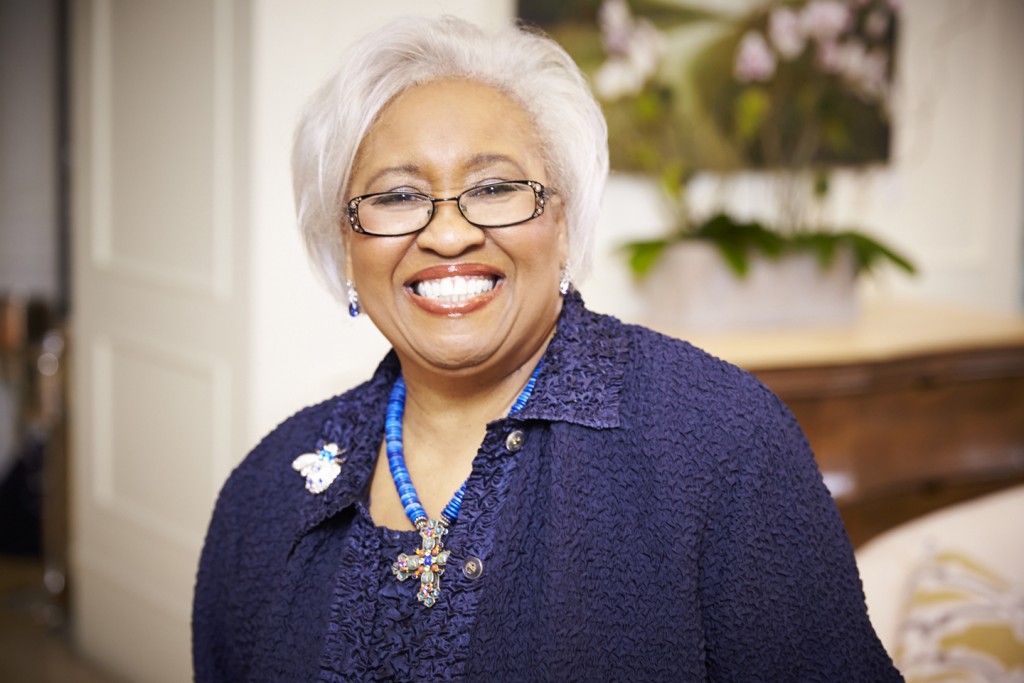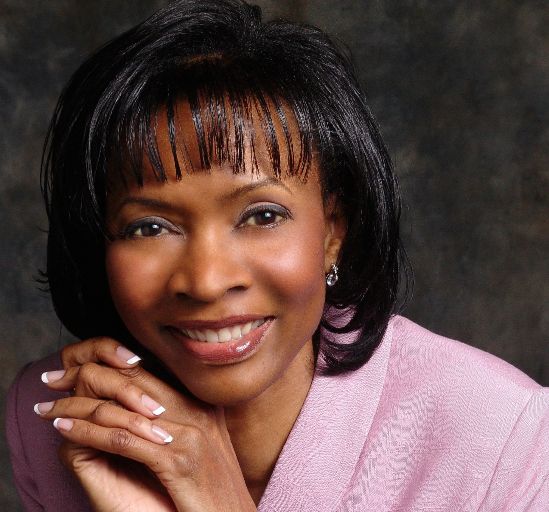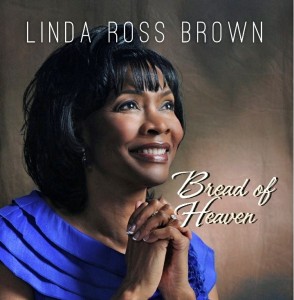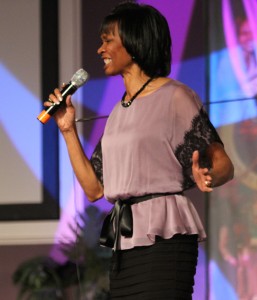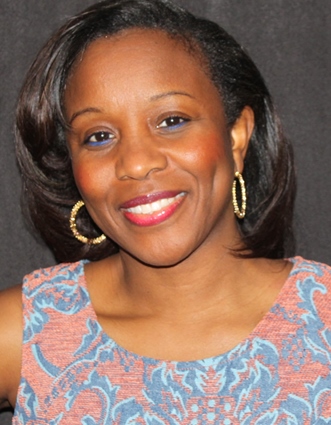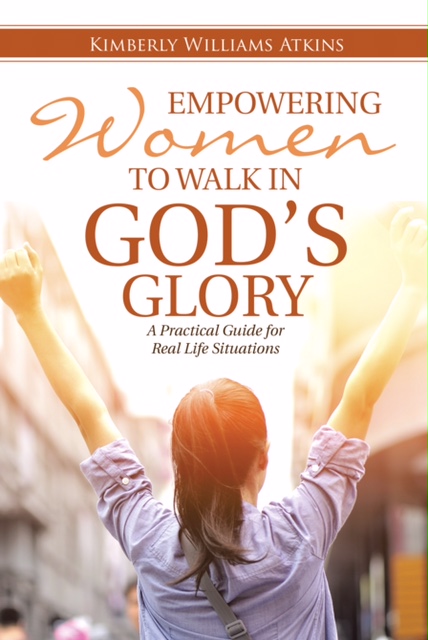Hello World,
Today’ s post is the fourth installment of my 7-month interview series entitled “Resilience & the Bible” which is about how Scriptures can be used to bounce back from the trials we all have to go through from time to time. Once a month, I feature someone who has used Bible verses to bounce back! If you know of someone who has bounced back using Scriptures and would like to be featured on my blog, please e-mail me at jacqueline@afterthealtarcall.com.
How to bounce back from racism and prejudice is the focus of this month’s “Resilience & the Bible” blog post. Since we celebrate the Rev. Dr. Martin Luther King Jr. holiday this month, I thought it would be interesting to speak with someone who has been able to bounce back from racism and prejudice as Dr. King dedicated his life to challenging racism and prejudice. Thelma Wells, who is one of the core women featured in Women of Faith, an annual conference that attracts millions of women in cities throughout the nation, faced racism and prejudice when she left her nurturing although segregated community in Dallas, Texas. However, her experiences and the guidance of her grandfather and great- grandmother, who raised her, prepared her for future opportunities which included her first job, a career in banking and her speaking ministry. Women of Faith, which began in 1996, is now conducting its farewell tour entitled “LOVED: The Farewell Tour” and will stop in Atlanta tomorrow, Jan. 22nd and Saturday, Jan. 23rd. Also, on February 18th (with an encore presentation on Feb. 20th), Women of Faith will be hosting a limited engagement theatrical event nationwide. This part documentary, part live-event will take audiences on history journey with never-before-seen interviews, hilarious out takes, and a time of worship.
Below is my interview with Thelma Wells.
What Scriptures have you relied on as you faced racism and prejudice and how have they helped you?
All of the Psalms, but particularly Psalm 23:1. “The Lord is my shepherd; I shall not want.”
When I was a girl, that verse helped me. The 23rd Psalm was taught to all children. In fact, I wrote a whole soliloquy on that several years ago and what it meant that the Lord is your shepherd. I wrote that because I needed more emphasis on that because life has been good to me, but it has also been sometimes an anxiety for me when I faced hard times like when I faced abuse or when I faced prejudice or whatever.
and Psalm 91:2 “I will say of the Lord, He is my refuge and my fortress: my God; in him will I trust.”
I’m 74 years old, will be 75 pretty soon. And I have gone back to the Psalms and reading the Psalms that David wrote and others and talking about the hardship, or the prejudice or the fears and God is always our refuge and our strength. I was concerned about something several months ago, and I said, ‘Let me get back in the book of Psalms’ because David and the writers always go back to the Lord is our strength. The Lord is our comfort. God always stabilizes us in the midst of trouble, sickness or disease.
Tell me about the racism and prejudice you faced growing up in Dallas, Texas.
Well, as a child, we were segregated because we couldn’t live other places where people could live. One of the things that was so rewarding to me was that I lived in a community that really was a village. We had people in our community in Dallas, Texas that could chastise you, could love you or whatever. Now, the prejudice that I encountered was not being able to go to sporting events, or the Majestic Theatre which is in downtown Dallas. Let me tell you what my granddaddy did. Every week when I was about eight or nine years old, he would take me to the movies at Majestic Theatre, and we would have to sit in what was called the buzzard roost. The buzzard roost was where only black folk could sit. We got the stale candy. We got popcorn that was stale. We had to go in the back door and go up the back steps in order to see a movie. But my granddaddy would say to me, ‘Pooch, (that was his affectionate name for me), one of these days, you’re going to be able to walk through the front door of the Majestic Theatre and walk down front and center and sit on the front row.’ Do you know what? When desegregation started somewhere around 1964 or 1965, I walked in the front door and down front and center in that elegant Majestic Theatre. Even though my granddaddy was not there with me at the time, I kept thinking about him.
When I graduated from high school, I did not realize I could go to a regular college. So I decided to take the street car and go downtown Dallas and go to this school that was advertised as a secretarial school. So I went down there. I had on my little blue dress with high-heel blue shoes. Girl, I was so cute I couldn’t stand myself. I got off the street car, walked over to this business college, walked in the door and when I stepped in the door, my excitement went to anger and hurt. I walked through the door there and the guy sitting there in the lobby said, ‘What are you doing here nigger?’ I said, ‘I came to enroll in school.’ He said, ‘Niggers don’t go to this school.’ I kept trying to talk to him, but before I could get out my sentences, he took me and pushed me out on the streets of Dallas, Texas. I was so hurt. I cried all the way home on the street car.
So my great-grandmother Sarah Harrell, who raised me, went to the woman she worked for and told her what happened. She was a very wealthy woman, and my great-grandmother worked for her as a domestic. She said, ‘Where does she want to go to school?’ The only college, other than the black colleges, that accepted black students was North Texas State College which is now the University of North Texas. She said, ‘Okay, let’s find out how much it costs.’ She said she would pay for me to go to college as long as my grades stayed above average and I did not get married. And she kept her word, girl. She paid my tuition and bought my books. And when I got married in 1961 when I was in college, it became my husband’s responsibility. I lived in the dormitories during the week in Denton 37 miles away and came home to Dallas on the weekends to be with him.
And living in the dormitories was another racial situation. Me and four other girls integrated the dormitories my third year there. They only let five of us do it because of our high grades. The other black students had to stay in campus homes outside of the community of the school. So they had five of us in one room with cots, and we were next to the boiler room.
I graduated with a degree in secondary education.
I think because of the positivity of my great grandmother and my granddaddy and because that was the way it was, I was not bitter about racism and prejudice.
What was your first job after you graduated from college?
I taught high school for about a year, but I couldn’t stand it. I just didn’t like dealing with high schoolers. So I was told there was a job opening for a black woman that was attractive and could type and had a college education. Because that was when they were talking about the quota system. So I went to an interview at the John Deere Company in Dallas, Texas with a gentleman. So he gave me this interview. He said, ‘Hi, You’re very attractive. Can you type?’ ‘Yes.’ ‘What is your degree in?’ And I told him. He said, ‘Okay, you got the job.’ So I became the secretary to the parts manager. I was the first black person in the Southwest to get that kind of job at John Deere. They put me in the mail room, and in the mail room, there was this great big addressograph and I had to sit or stand there. That was not the job I was hired for, but I had to take the envelopes and mail around to everybody before they would give me a seat as a secretary.
Well, I was disappointed but not to the point that I didn’t know that I was going to win them over. As I was going around putting the mail on the people’s desks, I learned everybody’s name and position. The other thing I learned was that I was not dressing appropriately. I wore gingham dresses, and I discovered as I walked around that the ladies were wearing skirts and blouses. I had never heard of Girl Friday, okay? So I thought, I gotta change and get me some skirts and blouses.
Also, I also discovered that every Monday morning, the ladies would bring recipes that they had prepared over the weekend and share them. Well, I didn’t have no recipes. I would just cook, and I would taste and that was my recipe. So I joined a recipe club so I would have something to talk about on Monday mornings.
I knew I had to assimilate because they were already there. I was the only black person in the building for three or four years. I was the token.
How did you get in the banking industry?
My husband and I had been banking at this bank for years, and I decided I’m going to work at this bank, okay? And so I went to this bank and interviewed, and the man said, ‘What type of banking experience do you have?’ ‘Absolutely none.’ So he told me, ‘I don’t have anything for you, and I probably won’t have anything for you to do so you don’t have to come back.’ I said, ‘Oh yeah, I’m coming back because I’m going to work at this bank.’ He said, ‘ No I don’t think so.’ I said, ‘Yeah, I will.’ So every week, I would call him. He would say, ‘I don’t have anything for you to do.’ I called him and harassed him so much until he called me one day and said, ‘Mrs. Wells, come on up here and interview with one of our officers.’ Well, I interviewed with this lady, and I knew she had no clout. She was probably not an officer. He was just trying to get me off of his back. So one day, I went up there and waited for him, and they told me he wasn’t there. I said, ‘Is he coming back today? I will wait for him.’ They said, ‘Yes.’ I said, ‘Okay, I have nothing to do today. I will wait for him.’ And I sat and I sat and finally he had to come out of his office. He was there the whole time. I said, ‘I’m going to work here at this bank so you may as well hire me because I’m going to harass you until you do.’
Well, he talked to a lady named Hannah Greenspan, and she was a Jewish lady. She was vice president of the bank, but she called me one day and said, ‘Would you come up here and talk to me?’ And I went and talked to her, and she said, ‘You’re hired.’ I was hired as a new accounts clerk. But guess what happened that time too? They put me in the mail room, girl! I was the only black full-time employee there.
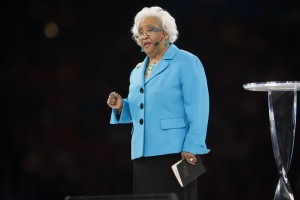 How did your banking position lead to public speaking?
How did your banking position lead to public speaking?
The bank didn’t have an addressograph, but I had to walk around and give everyone their mail. And I learned the people’s names and talked to people too. I noticed something though. I learned that a lot of people didn’t know what they were doing either at the bank. In looking at the mail, I saw a lot of things coming back that were wrong, complaints, etc. So I was strategic again. I found out about the American Institute of Banking. I called a lady who was the president of the institute in Dallas, and I asked her if I could enroll in banking school and she said I could. I took every course I could take for four semesters. I started in 1972 and once I finished, I called the president and said, ‘Now that I’m finished, I want to teach banking.’ She laughed at me and said, ‘You just got out of these courses.’ But I did start teach banking.
While I was teaching, I discovered that people had low self-esteem, even the bank officers that I was associated with. They could do their jobs, but when I would announce that we were going to have test or look out for a pop quiz, they would almost have a coronary. And I noticed how they interact with other people. They could do it outside of the classroom but not inside the classroom because they didn’t want anyone to know they didn’t know anything. So I prayed. I said, ‘I said Lord, give me something that I could leave with these people on the last night of class that will give them the courage and the energy they need to love themselves.’ That was just an honest prayer, and I didn’t know how it was going to be fulfilled. A lady saw me wearing a bumblebee pin. It meant nothing to me except it was cute. She said to me, ‘Thelma Wells, every time you wear that bee, remember you can be the best of what you want to be!” That was it for me. I said, ‘Lord, thank you.’ So I created a 15-minute motivational seminar based on that, and people started asking me to come to their fraternities, sororities, churches, this, that and the other. And since 1974, I have been giving that speech although I’ve never done it the same way twice because I ask God to show me who is in this audience and tell me what you want me to say. I’ve done it all over the world. I did it last night for a Women’s Night Out retreat for 500 women.
How did you become a part of Women of Faith? 
I wrote a book titled Bumblebees Fly Anyway: Defying the Odds at Work and Home. A lady saw it in the window in Barnes & Noble. She said that she stood there and read the book, and they were looking for a black woman to speak for Women of Faith who had a story to tell. From reading that, she came to my office and asked me if I would be a part of Women of Faith. By this time, I was not in banking. I got out of banking in 1984. I started my own speaking company because from the bank, I had so many speaking opportunities. So I quit the bank. I became a part of Women of Faith in 1996.
How do you feel about this being the farewell tour of Women of Faith?
I have mixed feelings to be honest. Even though many of the women in Women of Faith, we are mature, we’re not ready to stop. However, the mixed bag is after 20 years, you need some changes. And the women that I know that are on the tour are absolutely phenomenal and so it’s time to pass the torch. And it’s okay with me because I’m going to do what I’ve always done. I will still continue to speak to people with God’s blessing, but I am going to miss my buds, my buddies. But we have been together on the phone and in different functions, and it will always be that way. Friends are friends forever when the Lord is the Lord of them.
If you are in the metro Atlanta area and want more information about Women in Faith in Atlanta which will be held at Philips Arena and to buy tickets, go to womenoffaith.com. Also, the Women of Faith movie “WOMEN OF FAITH: AN AMAZING JOYFUL JOURNEY” will debut on Feb. 18. With lots of laughter and storytelling, this part documentary/part live stage event features never-before-seen interviews and behind-the-scenes footage that will feature some of the most beloved and popular speakers including Patsy Clairmont, Mary Graham, Jen Hatmaker, Nicole Johnson, Marilyn Meberg, Sandi Patty, Luci Swindoll, Sheila Walsh, and Thelma Wells, as well as music and performances from Christian contemporary artists who have appeared on the tour over the two decades. The presentation will also feature fun outtakes. The encore presentation will be held on Feb. 20. To order tickets go to wofincinemas.com.
Below is the trailer for the movie:
For more Bible scriptures online, go to BibleGateway.com.
Any thoughts?

